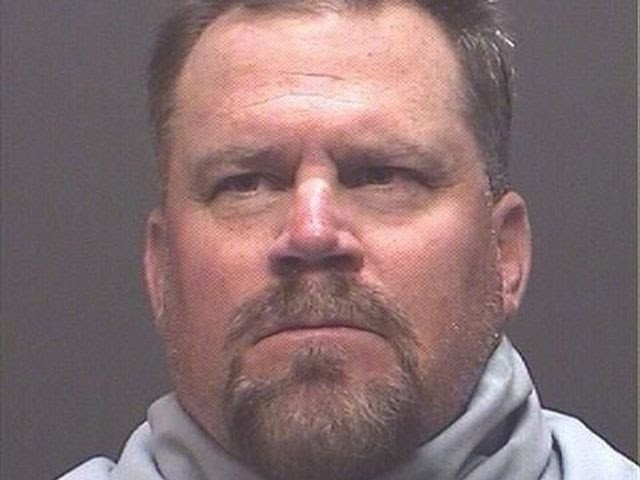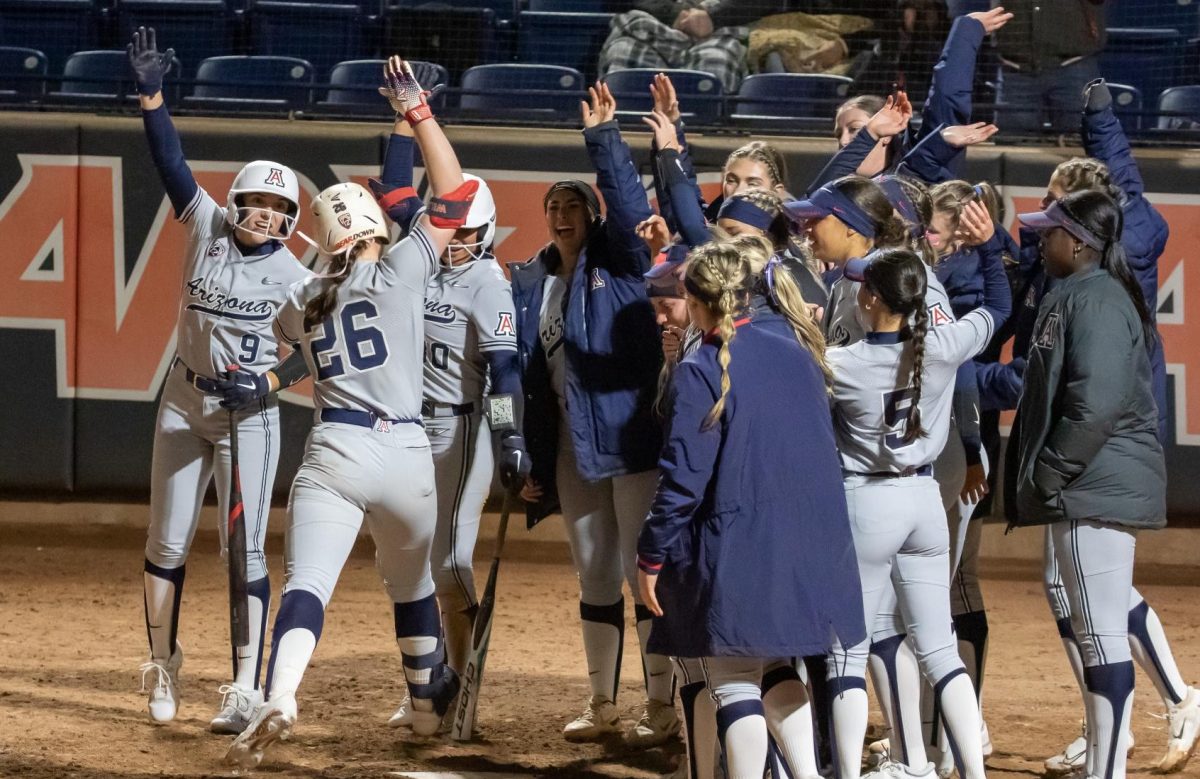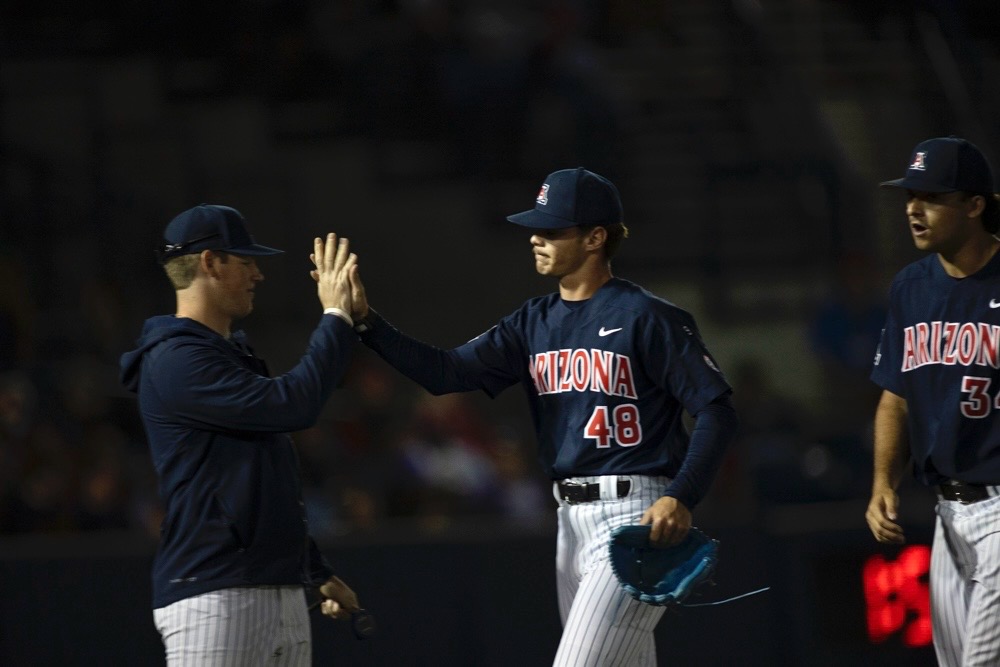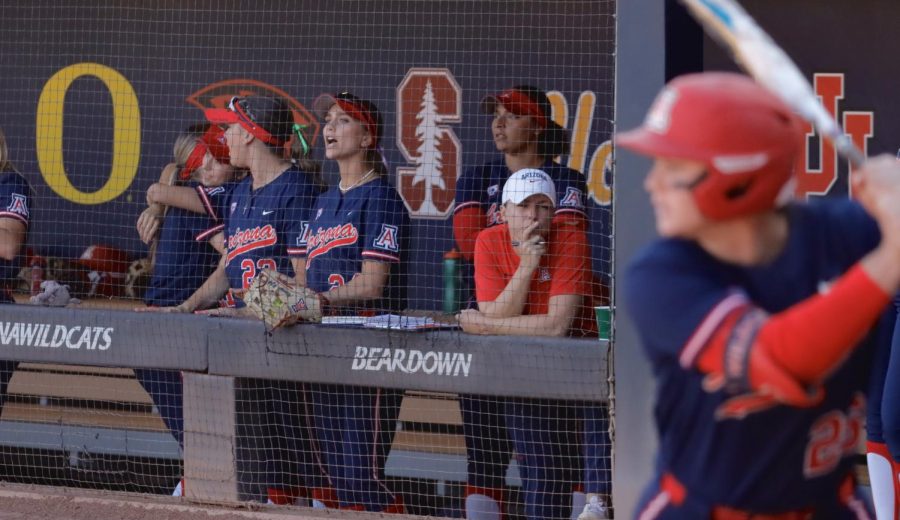After the prosecution and the defense rested their case yesterday, the Craig Carter trial moved into final arguments to determine the verdict of the aggravated assault and aggravated assault with a weapon charges against him.
Carter, a former track and field coach, had a sexual relationship with thrower Baillie Gibson. When she tried to break it off with him, Carter allegedly grabbed her by the throat and threatened to cut her face with box cutters.
In their closing arguments, the prosecution and defense spoke about different pieces of evidence and parts of the case to guide the jurors into reaching the verdict they desired.
Prosecution closing:
The main point of the prosecution’s closing argument, made by Julie Sottosanti, was that the only thing that matters is what happened in Carter’s office on April 20, 2015, the date of the alleged aggravated assault.
“On April 20 of 2015, Baillie Gibson wanted an out,” Sottosanti said. “She wanted out of college, she wanted out of Tucson, she wanted out of her relationship. Carter wasn’t going to allow that. In fact, because she said something that he didn’t like, he decided she deserved to be punished.”
They argued that Carter was found someone who wouldn’t talk about their relationship with anyone, and that because he was a coach, he was in a position of power over her.
“The other thing to remember about their relationship you have the coach relationship,” Sottosanti said. “For her entire adult life, he has been in control of her. It is his job to tell her what to do.”
When Gibson tried to break it off with Carter over text, she cited multiple reasons their relationship wouldn’t work – she was leaving Tucson after graduation, Carter would lose his job, his wife would take his money in the divorce – and the prosecution cited this as her trying to get permission to get out.
Carter began calling her names over text and threatening to kill her. When Gibson went to hs office, the prosecution argued that the aggravated assault was Carter’s last resort to get Gibson to do what he wanted since other tactics did not work.
They then defined what aggravated assault is in the state of Arizona, which requires that breathing or circulation of blood is impeded, touching for any time and intentionally causing fear of harm.
To demonstrate intent, she picked up a pen and described attacking her co-prosectuor, Jonathan Mosher.
“Those seconds, those are the only things that really matter in this case… Those seconds on the couch in coach Carter’s office on 4/20 between 4:30-5:30,” Sottosanti said. “That is all.”
Defense closing:
Defense attorney Dan Cooper focused on disproving the validity of Gibson and best friend Julie LaBonté’s testimony.
Over the course of the trial, the definition of “intimate” was argued. Does it mean just touching, or sexual relations?
Cooper argued that they were “intimate” in a sexual way before the Olympic trials in Eugene, Oregon, where it was argued that Carter allegedly raped Gibson because she too intoxicated to consent. Because, he argued, Gibson never mentioned rape to anyone, that part of her story must be false, and her testimony could be faulty.
“She has plenty of chances to say that this is a rape,” Cooper said. “Even, even, even if somehow you accept that the word intimate does not mean that they were having sex, what possible reason is there for not telling [UAPD Detective Timothy] Larkin that she was raped? There is none.”
Another hole he found was the naked photo Carter allegedly took of Gibson to use as blackmail. In LaBonté’s testimony, she said Carter never pulled Gibson aside to show her this photo, so the blackmail also must not have happened.
Cooper also compared testimony between Gibson and LaBonté during the time before Gibson went to Carter’s office, and said it didn’t match up, because they didn’t drive from home together like LaBonté said because Gibson testified to being in the library.
Finally, Cooper demonstrated the lack of evidence about strangulation. Gibson testified that Carter had strangled her for 15 seconds, and Cooper counted each second out, banging on the railing in front of the jury with each number: “One, two, three, four…”
“That’s a long time to not leave any marks,” Cooper said.
Cooper asked the jurors to not find Carter guilty on all charges.
“As he told the detective, ‘I’m a good person I wouldn’t hurt anybody,’ and Craig Carter is not guilty of all these counts,” Cooper said.
Rebuttal:
The rebuttal, argued by Mosher, tried to dispel Coopers arguments by saying that it doesn’t matter if Gibson said something wrong in 2012, and told jurors to focus on the tests of truth given by the judge to decide the verdict.
He cited text messages and confessions made by Carter during his interview with Larkin and asked jurors to decide based on that.
“If you spend half of trial takling about Olympic trials, where’s the focus?” he asked.
He went over the dynamic between Carter and Gibson, how Carter had power over Gibson and she kept her mouth shut.
“You’re being asked to believe that she’s so hateful and spiteful… even during all of this when she could be a spiteful person, look at the dynamic,” Mosher said, referring to how Gibson did not want Carter to her himself and how she still cared about him.
He ended his rebuttal with a reminder of what the jurors have to do.
“There’s very few things we know without absolute certainty,” Mosher said. “If you are firmly convinced of the defendant’s guilt, then you have to convict him as guilty.”
“The standard is firmly convinced, nothing more, nothing less.”
Jurors were then told instructions on how to conduct their deliberations, and will deliberate and return with a verdict when finished.
Follow Rocky Baier on Twitter.















